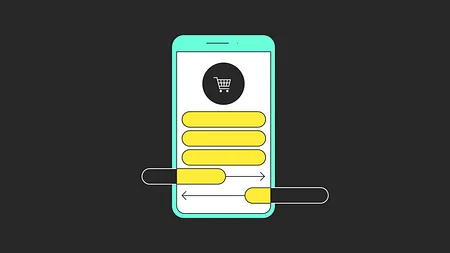Rod Drury on Xero's origin story, new partnerships & Xerocon
Jason Bates interviewed Xero CEO and Founder, Rod Drury ahead of Xerocon, London, all about his background, Xero’s origins, how it expanded into a global presence, their latest partnerships and what people could look forward to at Xerocon.
You’ve been Founder of lots of successful companies over the years. Can you tell us a bit about your journey?
I got into computer programming at school, and I think coming from a small set of rocks in the South Pacific, being able to build something with your brain, and that would sell while you’re sleeping, always really appealed to me.
My first job was at Arthur Young, before the merger with Ernst & Young, which is now EY, so I did auditing for my first year, then talked my way into the IT consulting group. I really came up on the Microsoft side of the fence. So, I was on the early beta of Visual Basic and Microsoft Access, and SQL Server, then ASP and on and on and on, so we got really good at writing complex business apps on the web, and I think, the ability to write complex business applications and not have to send out software, has always been really magical, and I’ve managed to, you know, build businesses that have allowed me to do that.
Was Xero the first thing that you tried? Or were there a number of things before this?
First of all, we did a services business, so we were doing our bespoke software development, mainly in Microsoft Access, then in SQL Server, and that got up to about 60 people. Then we sold that, in ’99. Then did a bunch of, kind of, interesting startups, did a document management startup, had an idea around directories, which is very relevant to the stuff we’re doing now, and then I started a business called Aftermail, it had always bugged me that there wasn’t a relational database on the Microsoft Exchange, so we built that, and I sold that to Quest Software within a couple of years of starting it up, and that gave me the capital for the initial funding of Xero. And then I was on the board of Trade Me, which was New Zealand’s version of eBay, which we sold for half a billion US dollars, about 11 years ago, and that put quite a lot of capital in our network, and New Zealand, which helped us get Xero off the ground, as well.
What’s the origin story of Xero? What’s the moment when lightning struck, and you’re like, “Yes, this is it!”
Doing financial systems implementation at EY, you always think, “I could do this better,” especially being a programmer. So, about three years before I properly started Xero, I was actually doing some work up in Boston. We had a company there called Context Connect, and it was just starting to slow down. Active Server Pages 2 came out from Microsoft [and] I always wanted to build a relational accounting engine, so I played with that for two weeks, and it felt really good. I knew that was my next business, but I also knew it wasn’t a quick build and sell to somebody. At that point I really wanted to make some money, so I did Aftermail, the email archiving product, and as I was doing that, I was sort of thinking about how hard and how homemade desktop accounting software felt, so I knew that Xero would be the next one.
The real hypothesis there was, we saw the consumer internet taking off, and consumers were having better technology experiences than large enterprises were. We also knew that in the consumer space, people don’t like spending money, so the next biggest market must be all small businesses. So we thought the small business internet was probably the biggest monetizable opportunity on the web, and then most technology was being deployed in the enterprise space. When we saw the Cloud, it fundamentally changed the distribution costs of getting software to small businesses. We realised that accounting would be the key systems of record, all small businesses have banks, the smart ones have business advisors, so there’s a natural accounting channel, and they all have a relationship with the taxman. So, you can choose to use accounting software or not, but you must do accounting.
We realised that accounting would be the key systems of record, all small businesses have banks...and they all have a relationship with the taxman. So, you can choose to use accounting software or not, but you must do accounting.
I’m a bit of a product geek. I love how end user needs are then translated into some kind of product, but how you can iterate and actually develop from there? How long did that first build take?
Because we had some capital after I sold Aftermail, I went straight into what became Xero, and we had some great designers on board. So when we started, we did some real R&D. We knew it had to be a global engine from day one, because we could see everything globalising. It had to be a proper, double entry accounting system, use the power of a relational database, we wanted to deal with the problem of cash versus accrual accounting.
We knew it had to be a global engine from day one
We actually built a little prototype on rails, threw it away, went back to .net, because we wanted the power of a proper SQL database. And then we started really trying to look for some killer experiences, and we brought a fantastic designer onto the team, and we followed small businesses around, because what we noticed, the three main desktop vendors were all kind of doing the same thing. So, one of our first design-led stories was, we noticed that a small business owner would, you know, open up the factory first thing in the morning, and the first business thing they’d do would go to their online banking, to see who’d paid them overnight. But they didn’t process the data. So, the horror of small business was just before, say, a VAT return was due, basically reprocessing all of your data.
So small businesses was fun, but doing the books was a horrible experience. One, could we get digital bank feeds directly in? So rather than going to check online banking in the morning, you went to your accounting software and your transactions were already there? And then the second thing was, how do you make it a fun experience? We looked at kids’ games, and this concept of matching transactions, so our first killer feature was actually our bank reconciliation. And we went from bank rec being something you did maybe every two months, to something you did every morning as your primary data entry. Your bank transactions would arrive, you’d enter your new cash transactions, and match off invoices or bills that have been paid, and then it was like a game of Tetris. And at the end of it, click, you’re all done.
I’ve started a few businesses through my career, and you want to run the business, rather than be an accountant, [and so it] seems like a crazy thing to set up the chart of accounts right from the start.
Yes. We know that large businesses aren’t going to be where the jobs are created. So we were thinking as a team, you know, “How do we make better schools and hospitals? How do we really make the world better?” and it’s by creating jobs, and creating jobs in the small business sector. So, when everyone was running their own PC software, there wasn’t this network of small businesses. Now they’re on these platforms, and we’re over a million customers now, and our million customers interact with 20 million other businesses. You can communicate with small business at scale.
How do we really make the world better?” and it’s by creating jobs, and creating jobs in the small business sector.
So we’re turning our accountant channel into business coaches that are working with small businesses all over the world, and getting them to add that one new job, which is about getting access to capital, debt, other financial services, so they can grow, and also how to get them on-boarded onto global marketplaces. So, we’re super excited, we think creating employment for small business at scale is probably one of the most noble things you can do, and it’s a huge amount of fun.
So I want to pick up one of those points around accountants, because it strikes me as quite interesting. On one hand, you’ve got those end customers, the small businesses themselves, and then you’ve got the accountants that have always traditionally serviced those guys, and charged however much they charge. Are you seen as something that disrupts that? Are you good for accountants? Are you good for the small business? Are you good for both of them?
We’re good for accountants, because we’ve been able to track all of the data. We’ve got 20,000 or 30,000 accounting firms using Xero, and over 100,000 accounting professionals, so we can say they make more money and they have more time. We’ve tracked all of that data, lots of surveys, and we can see it inside. So, they absolutely do better. But we’re taking them through a transition where the old technology model used to really drive accountants to the end of the process, to be scorekeepers, and once you have these digital bank feeds, there’s a real-time view of what’s happening in the business, up to date, every day, then a lot of the compliance work goes away, so we free up time for accountants to be these growth coaches. We’re spending a lot of effort on the transition of the industry, and giving accountants new skills to be able to get out there and actually help businesses grow.
We’re spending a lot of effort on the transition of the industry, and giving accountants new skills to be able to get out there and actually help businesses grow.
This takes away the base jobs that accountants used to do, and moves them further up the value chain?
Absolutely. So, we think that if it exists, that an accountant can be seeing on a daily basis what the numbers of their business customers are, they can almost continuously certify those numbers, and, in some sectors, we’re seeing it almost become mandatory now, that the accountant is digitally connected, say, to the loan, where they’re acting as daily director or governor those loans, on behalf of the banks, which is super interesting.
I’ve always been impressed with the number of facilities and services that Xero will connect directly in. How do you manage that?
We are a true platform in that we’ve always provided clear APIs. So we have about 600 certified apps, and these numbers are crazy, 40,000 developers now connecting to the Xero platform. So a lot of our small businesses are doing bespoke integrations to the platform, because they can build really nice workflow systems using all sorts of scripting tools and things like that.
What we’ve found is these partnering things take a long time, and you’ve got to earn trust. Banks are in a really tough time. They have increased regulation they need to deal with, they’ve all got core systems rewrite, and yet they’ve got customers now used to apps updating on their mobile phone every month, so they want the latest, latest, latest, and, so what we find is, there’s normally, in each market, one or two banks where the timing works out, and they’ll be our pathfinder bank that we can work with, and we’ll start establishing some new services.
You’re here for Xerocon, a big conference that’s happening in London at the moment. What are the new initiatives, that people will hear about at that conference?
We’ve got some good banking partners, so we’re working with pretty much all of the UK banks, and they’re now moving into the next generation of digital feeds.
We’re launching Xero Expenses, so that allows small business owners to, and their staff, to do reimbursements, and that’s a nice banking integration point. We really love the categorisation at point of sale that’s been driven up in the UK, and the ability to fire expenses through a banking front end into accounting is pretty exciting.
We’re launching our Lifelong Learning programme, so we’ve really cracked how students can learn Xero, and all of the other products connected to Xero, and that’s really important, because retraining is really key at the moment, so people can pick up new skills in the middle of their career.
Xero Projects: time and cost for professional services. Most UK businesses are services businesses, so that’s a really big one.
One of our other really big announcements is the Xero HQ open practice platform, where we’ve worked with our best of breed accounting partners, and giving accountants a curated experience for all the things they need to run their practice.
Let's finish off with a few questions to help young entrepreneurs out there, I guess, who are really trying to make their way. What’s your number one productivity tip?
I try to exercise very day. For a few reasons. Your brain needs time for unconscious thought, so if I’ve got a problem, you know, by the time I’m coming down the hill after a ride, it’s usually solved. It's also good for stress management. Your body’s made up of a bunch of chemicals, flushing them out by doing some exercise must be good. I think a really important one is being an active networker. When I meet people, I’m thinking about, “How can I help them?” and just keep trying to pay it forward. It’s amazing, you’ll meet somebody interesting, and then two days later, you’ll meet somebody that they should meet. So I’m always paying forward introductions. Don’t expect anything back, but I’ve just got in the habit of always connecting people. Then you’ve been useful for people, and that always comes back times ten.
I think a really important one is being an active networker. When I meet people, I’m thinking about, “How can I help them?” and just keep trying to pay it forward.
How do you motivate a team?
I think you’ve got to really paint the vision, and I think entrepreneurs have to be good storytellers, and if you can paint the really big picture, and then if people buy in to it, and feel like they’ve contributed to it, that empowers them to make decisions every day. So, you want to get to a point where everyone understands where we’re trying to get to, and then that allows them to make decisions and move forward. We’re about 1,800 people now, so I spend a lot of time repeating the vision, getting feedback, [and] if I hear a good idea from the team, that’s even better.
You’ve got to really paint the vision, and I think entrepreneurs have to be good storytellers
How have you dealt with managing at scale?
We did an IPO very early on, I was always working on the business, and I’m always out there networking, trying to find talent. So, I’m always hiring great people, and making sure we have those team dynamics between all of our leaders, and our leaders are coaches that are bringing people through. I think if you’re working on the business not in the business, your head’s out, making sure you’re executing strategy, and you’re putting in place the people that actually run and operate the business. And I think that’s the benefit of having real capital, is that you don’t have to be the operator as well, you can actually work on the business and drive it forward.
What’s the best career advice you’ve ever received?
I turned 50 recently, and I’m still having fun. We’ve got a lot of people who work for us in their 50s and 60s that are also having a really good time, and I started Xero when I was 40. So there’s no huge hurry to do this. I think your 20s are about building your base experience, trying a few things out, and build that deep, deep skills. Your 30s, you start to really network and, your leadership skills come through, and then, in your 40s, you can really leverage all of that.
So think of entrepreneurship as a series of baby steps. You always hear the stories of the person that smacked it out of the park in their 20s, but actually, a far more repeatable process is doing a number of smaller deals, and with each thing, you get more experience, more of your own money, so you can have more of it, and you usually get better ideas, as you gain more experience. So, I think, enjoy the journey, because it’s so much fun, and if you’re enjoying it, it never feels like work.
Enjoy the journey, because it’s so much fun, and if you’re enjoying it, it never feels like work To find out more listen to the interview in full on our Fintech Insider podcast, and stay tuned for more Fintech Insider Interviews from Xerocon, London!



